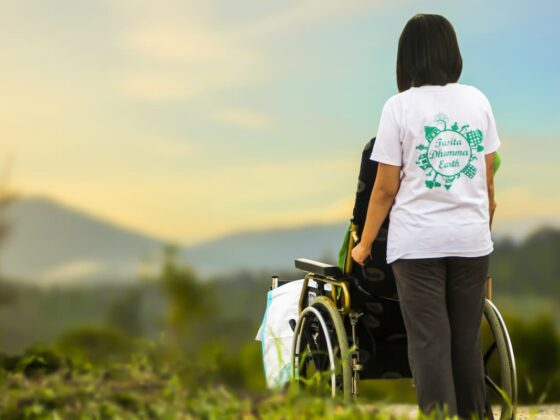Understanding Domestic Violence in Hong Kong: A Training Session for Equal Justice
Domestic violence is a pervasive issue that affects individuals and families across all demographics. In Hong Kong, the problem has garnered increasing attention from various sectors, including non-governmental organizations (NGOs), policymakers, and the public. We explore key themes and insights from a two-hour training session conducted on 29 November 2024 for Equal Justice and focused on addressing domestic violence in Hong Kong.
The session aimed to equip participants with the knowledge necessary to understand the complexities of domestic violence and the legal frameworks that govern responses to it.
The Prevalence of Domestic Violence in Hong Kong
Domestic violence in Hong Kong manifests in various forms, including physical, emotional, psychological, and sexual abuse. According to the Hong Kong Police Force, thousands of cases are reported annually, although many instances go unreported due to stigma, fear of retaliation, or a lack of awareness about available resources. The training session emphasized the importance of recognizing the signs of domestic violence and understanding its impact on victims, families, and the wider community.
Recent statistics underscore the severity of the issue. Data from the Hong Kong Social Welfare Department indicates that a significant percentage of victims are women, with a notable number being children who witness or experience violence in their homes. Moreover, the economic implications of domestic violence, including healthcare costs and lost productivity highlight the broader societal impact.
Legal framework addressing Domestic Violence
The training session provided an overview of the legal mechanisms available in Hong Kong to combat domestic violence. Key legislation includes the Domestic and Cohabitation Relationships Violence Ordinance, Cap. 189 (DVO), which provides a legal framework for protecting victims and punishing offenders.
Under the DVO, victims can seek protection orders, which may include conditions such as prohibiting the abuser from approaching the victim or entering shared residences. The training highlighted the process for obtaining these orders, including the required documentation and the role of the police and social services in supporting victims.
Civil remedies and rights available for Domestic Violence victims
Civil remedies for domestic violence primarily involve injunctions, which are court orders designed to protect victims from further harm. There are several types of injunctions available:
- Prohibitory Injunctions: These prevent the abuser from making contact with or approaching the victim.
- Mandatory Injunctions: These may require the abuser to take specific actions, such as vacating a shared residence.
When considering applications for injunctions, courts evaluate various factors, including the severity of the threat, evidence of prior incidents, and the overall safety of the victim. Practical tips for applicants include gathering comprehensive evidence, such as photographs, medical reports, and witness statements, to support their case.
A few notable cases involve individuals who successfully obtain a prohibitory injunction against their partners after demonstrating a pattern of harassment and threats. These cases underscore the importance of legal protections and the role of the judiciary in safeguarding victims’ rights.
Best interest of the child
In domestic violence cases, the best interests of children are paramount, guiding legal principles and court considerations throughout the judicial process.
Courts in Hong Kong are mandated to prioritize children’s welfare when making decisions regarding custody, visitation, and protective measures. This involves assessing the potential impact of domestic violence on a child’s physical and emotional well-being.
Factors such as the child’s safety, the stability of their environment, and the ability of each parent to provide a nurturing atmosphere are crucial in these evaluations.
The overarching goal is to ensure that any arrangements made serve to protect children from harm while promoting their healthy development, reflecting a commitment to safeguarding their rights and needs in the context of family law.
Complexity of real-life cases
The complexity of real-life domestic violence cases is often heightened by the interaction of multiple factors, such as divorce petitions, immigration issues, and child custody disputes.
In situations where victims seek protection while navigating a divorce, the presence of domestic violence can complicate custody arrangements and influence financial settlements.
Furthermore, previous discussions, such as those in the CLEM session on Divorce, emphasize the need for comprehensive legal strategies that address not only the immediate safety of victims but also the broader implications for their family dynamics and legal rights across jurisdictions. This multifaceted nature of cases underscores the importance of tailored legal support for victims facing these intertwined challenges.
Role of NGOs and the impact of enhancing legal knowledge
NGOs play a crucial role in bridging the gap between victims and legal services. During the training, participants learned about the various services offered by NGOs, including legal counsel, counselling, and safe housing options. The session emphasized collaborative efforts between NGOs and law enforcement to ensure a holistic approach to supporting victims.
Many NGOs operate with limited resources, impacting their ability to provide comprehensive services to all victims. Participants discussed potential strategies for resource mobilization, including partnerships with private sector organizations and community fundraising initiatives.
The two-hour training session for the NGO provided valuable insights into the complexities of domestic violence in Hong Kong. By understanding the legal framework, recognizing the signs of abuse, and equipping participants with practical skills for supporting victims, the training aimed to foster a more informed and proactive approach to addressing domestic violence. As awareness grows and more individuals become engaged in the fight against domestic violence, the hope is to create a safer environment for all individuals in Hong Kong.
Collaboration between lawyers and NGOs
Collaboration between lawyers and NGO workers is essential in addressing the multifaceted needs of clients affected by domestic violence.
Victims often require more than just legal support; they may also need emotional counselling, financial assistance, and safe housing. Effective collaboration can ensure that clients receive comprehensive care that addresses all aspects of their situation.
Practical tips for fostering this partnership include regular communication, joint training sessions to enhance understanding of each other’s roles, and establishing referral systems to streamline access to necessary services. Additionally, both lawyers and NGO workers should prioritize aspects of evidence collection and documentation, as thorough records are crucial in legal proceedings.
By working together, lawyers and NGO personnel can create a robust support network that empowers clients and enhances their chances of securing justice and safety.
Case stories discussed during the session
- Yasmine
Yasmine suffered both verbal and emotional abuse from husband since they first met such as locking her insider her flat to prevent from leaving, constant accusations of her with other men and not allowing her to speak to them, constantly telling her that she was disrespecting him, telling her that as a woman her role is to obey and not question, getting angry when she refuses to do something for him when he asked, making her feel that she is the constant cause of his anger.
Yasmine did not recognize all these as abuse because she thought it was normal for man to speak to his wife in this manner – cultural beliefs and conditioning.
Her husband was charged with assault, but Yasmine was unable to provide evidence against her husband and the legal action was discontinued.
- Betty
A Hong Kong is a permanent resident originally from Pakistan. After marrying in Pakistan, Betty relocated to Hong Kong with her husband but sought a divorce due to escalating issues in their marriage.
Her initial application for Legal Aid was rejected on the grounds that Hong Kong courts lacked jurisdiction to grant her a divorce. Compounding her difficulties, her husband took their youngest son, aged eight, to Pakistan, preventing B from contacting him for nearly two years.
Her husband returned to Hong Kong with their son. With the assistance of solicitors and a counsel acting pro bono, B successfully obtained a prohibition order preventing her husband from removing their son from Hong Kong.
She was granted Legal Aid, allowing her to move forward with both the divorce proceedings and the arrangements for care and control of her son.
- Joshua
He’s married male MDW from the Philippines. He began engaging in an affair with his supervisor, but soon after, the wife discovered the affair and Joshua wished to end his relationship with his supervisor. However, the supervisor was unwilling to end the relationship and was both physically and verbally abusive (threatening his family and physically harming him).
Call to Action
As we move forward, it is imperative that NGOs, community members, and policymakers continue to collaborate in raising awareness, supporting victims, and advocating for stronger protections against domestic violence. Only through a united effort can we hope to eradicate this profound issue from our society.
More about Community Legal Education Month 2024 (社區法律教育月)
Equal Justice is partnering with different law firms to bring NGO caseworkers and lawyers up to speed on the most recent developments in the community legal access space in Hong Kong.
The initiative is covering the 6 legal topics that pro bono lawyers and charity caseworkers work on every day. These are the laws that matter greatly in the lives of everyday people in Hong Kong: Divorce, Personal Data, Landlord & Tenant, Technology Scams, Immigration, and Domestic Violence.
Knowing about the law and being able to spot and, ideally, prevent legal problems from escalating is key to a more inclusive, less stressed and more sustainable Hong Kong. The OECD’S paper, Equal Access to Justice for Inclusive Growth states the impact well: “There is an important connection between unsolved legal issues and broader issues of health, social welfare and economic wellbeing.”
More about Equal Justice
Equal Justice is an NGO operating in Hong Kong, dedicated to providing legal support and advocacy for marginalized individuals, particularly those affected by domestic violence and other forms of injustice.
The organization focuses on empowering victims through access to legal resources, counselling, and community education, ensuring they understand their rights and options.
Equal Justice collaborates with various stakeholders, including legal professionals and social service organizations, to create a comprehensive support network aimed at fostering a more equitable society. By raising awareness and advocating for systemic change, Equal Justice plays a crucial role in promoting justice and protecting the rights of vulnerable populations in Hong Kong.
More about Bridges of Empowerment
The newly launched programme, led by Hugill & Ip, is dedicated to empowering minorities and underrepresented communities in Hong Kong, including enhanced legal awareness. It’s a pathway to empowerment, one bridge at a time.
This initiative represents a significant step towards fostering a more inclusive and just society where diversity is celebrated, and every voice is heard.
By raising knowledge, providing education, and enhancing language support, the program aims to break down barriers and ensure equal access and participation for all individuals, regardless of their background.
Key goals include creating valuable tools and resources on legal issues for minority groups, NGOs, and social workers, building relationships with community leaders to educate target beneficiaries, and connecting sports events with minority participation to drive awareness.
Additionally, the program seeks to encourage greater diversity and representation within the legal profession in Hong Kong, ultimately striving for a society where everyone can thrive.




